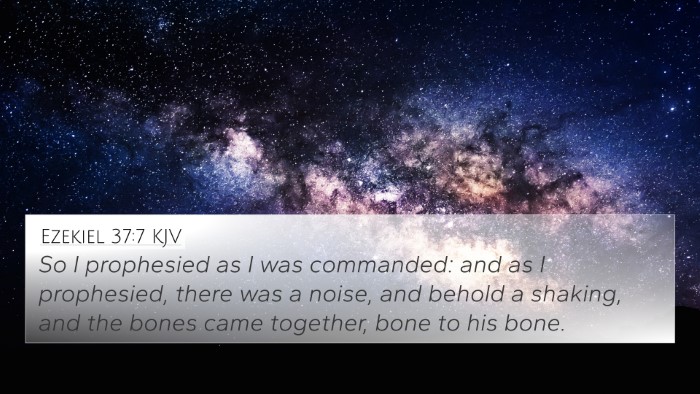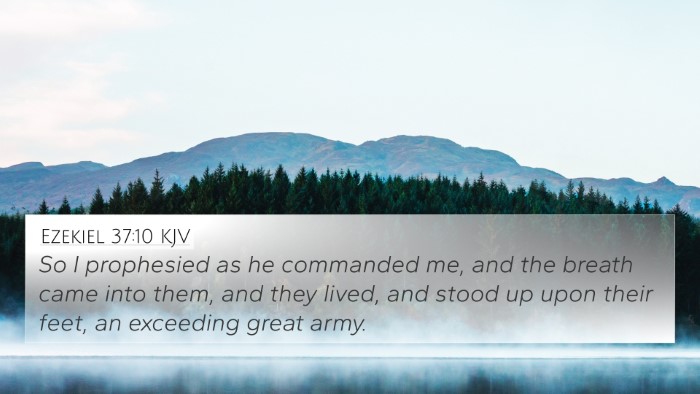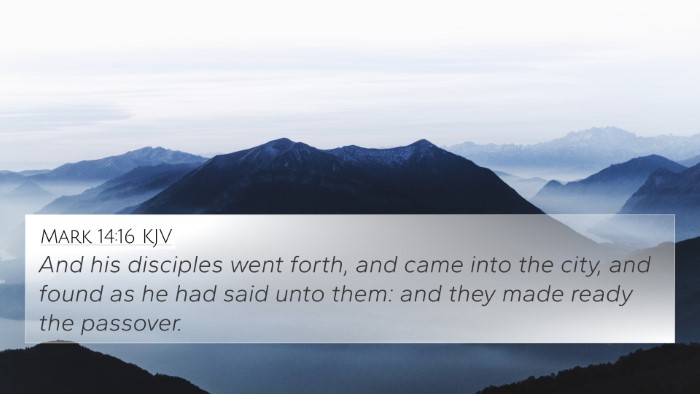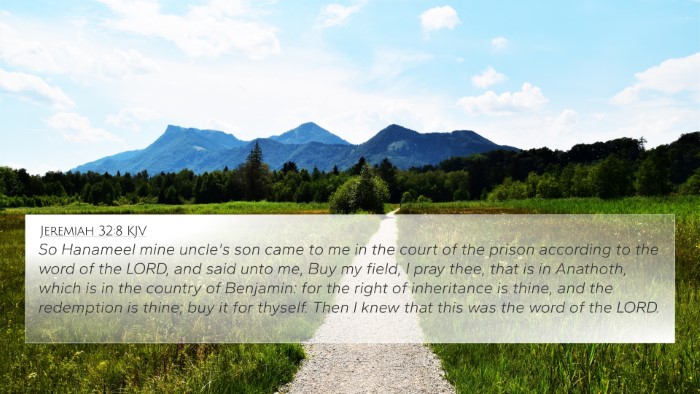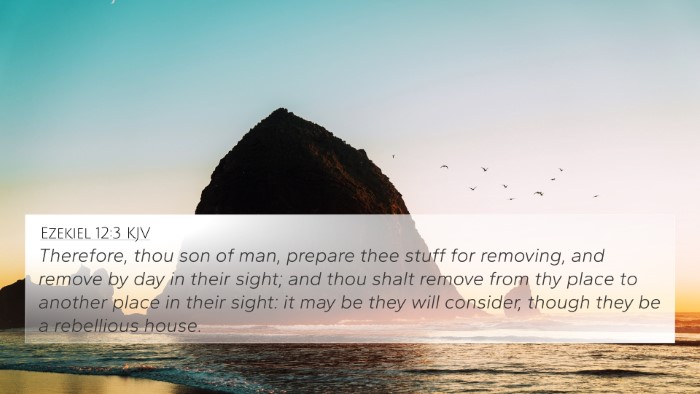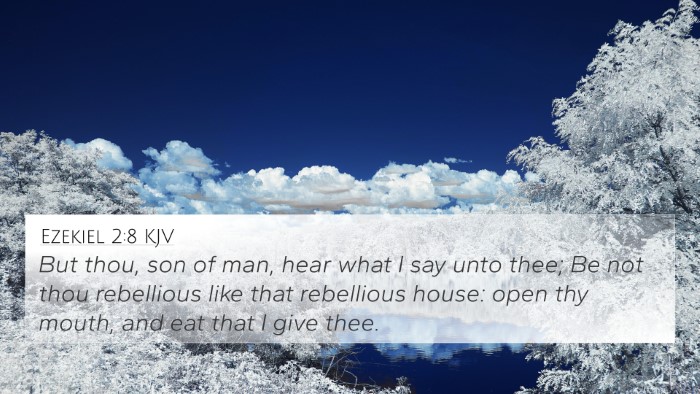Ezekiel 12:7 - Summary and Meaning
The verse Ezekiel 12:7 states:
"And I did so as I was commanded: I brought forth my stuff by day, and I gathered it by night, and I brought it forth in the twilight, and I bare it upon my shoulder in their sight."
This verse captures a significant act of symbolism and prophetic action performed by Ezekiel, which conveys deeper meanings regarding Israel's impending exile and the Lord's instruction to His messenger. Below is a summary of its interpretation, incorporating insights from various public domain commentaries.
Interpretation of Ezekiel 12:7
In Ezekiel 12:7, the prophet Ezekiel obediently follows a command from God to act out a symbolic gesture that illustrates the fate of the Israelites. Each element of this act is rich in theological implications:
- Obedience to Divine Command: Ezekiel’s actions demonstrate his faithful adherence to God’s word, inspiring readers to reflect on the importance of obedience in their relationship with God.
- Symbol of Exile: The "stuff" that Ezekiel carries symbolizes the belongings of the exiled people, highlighting both physical loss and spiritual desolation during captivity.
- Public Witness: Carrying his load "in their sight" signifies a visible prophetic warning to the people regarding their coming judgment, underscoring the role of prophets in society.
Thematic Connections Between Bible Verses
The actions of Ezekiel can be connected to several other Bible verses that delve into themes of prophecy, judgment, and exile:
- Jeremiah 1:10: This verse speaks about the prophetic calling of Jeremiah, aligning with Ezekiel's mission of warning Israel.
- Isaiah 20:2-4: Similar to Ezekiel, Isaiah acted out messages concerning judgment, underpinning the role of prophetic symbolism throughout the Scriptures.
- Lamentations 1:1: A lament for a people who have suffered loss and exile, echoing the sentiments within Ezekiel's prophetic act.
- Isaiah 46:10: God's declaration of the end from the beginning emphasizes His sovereignty, paralleling Ezekiel’s foretelling of the exile.
- Ezekiel 3:17: God appoints Ezekiel as a watchman, directly linking his actions in chapter 12 with his role as a divine messenger.
- Matthew 24:2: Jesus references the destruction of the temple, which relates to the theme of loss and exile found in Ezekiel's message.
- Revelation 3:10: A promise of deliverance from trials resonates with the hope embedded within Ezekiel’s warnings.
Cross-Referencing Biblical Texts
Understanding Ezekiel 12:7 benefits greatly from a comprehensive cross-referencing approach. Utilizing a bible cross-reference guide, one may explore various connections such as:
- How to find cross-references in the Bible enhances the study of prophetic literature.
- Tools for Bible cross-referencing can provide insights into similar themes across the Scriptures.
- Comparative Bible verse analysis can reveal the cohesive narrative of God’s judgment and mercy through prophetic acts.
- Bible verses related to exile and restoration offer thematic continuity, encouraging readers to explore the full story of redemption.
Conclusion
Ezekiel 12:7 serves as a profound example of obedience to God’s calling and the prophetic mission to communicate divine truths. By examining this verse alongside its connections within the broader biblical narrative, believers can gain deeper insights into the nature of God’s messages throughout history.
For those studying the Bible, engaging in cross-referencing methods can enrich understanding and facilitate deeper theological reflection. Exploring thematic Bible verse connections not only sheds light on Ezekiel's actions but also encourages reflective study of God’s overarching narrative of redemption that permeates Scripture.




